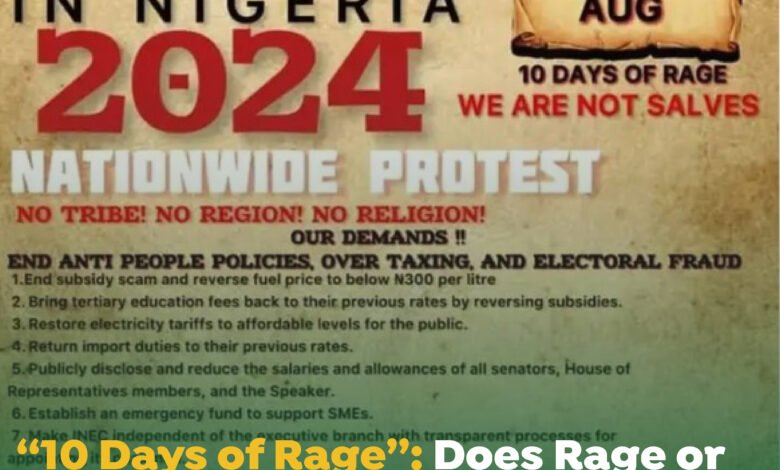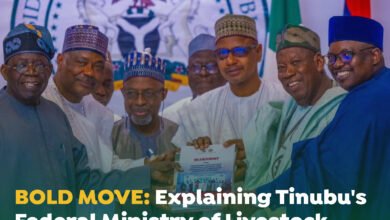
As Nigeria’s stability hangs in the balance, a provocative question resonates through the streets: Can a nation be built on the foundations of rage, or does reason hold the key to a brighter future?
The upcoming ’10 Days of Rage’ protest, scheduled for August 1-10, has sparked a fierce debate about the role of emotion versus intellect in shaping the country’s future.
Organisers insist on their constitutional right to protest, despite repeated warnings from the government and civil society organizations (CSOs) that the protest could be hijacked by individuals with sinister motives, as seen in the 2020 #EndSARS protest.
UN Threat and Risk Assessment
The United Nations Department of Safety and Security warned on July 19 that the protest, organised by different groups with varying motives, may be exploited by individuals with clandestine agendas. Recent protests in the country have been hijacked by arsonists and anarchists, highlighting the risk.
“Recall that in the 13–16 February 2023 interval, tensions generated by the paucity of new Naira currency (financial crisis) reached high levels amongst the civilian population, which materialized in violent protests in the South-East and South-South regions of Nigeria, in the states of Akwa Ibom, Delta, Edo, Imo, Kwara, Lagos, Ondo, Ogun, Oyo, and Rivers,” the United Nations noted in its risk and assessment.
“During the civil unrest in the different states, several bank branches and ATM points were vandalized, and major roads were blocked. As the turnout for the ’10 days of rage’ protest is expected to be high, large-scale disruptions to normal economic and social activities cannot be discounted,” it added.
The UN further said there could be a clash between the protesters and the supporters of the government.
Shelve Planned Protest
President Bola Tinubu has urged organisers to cancel the protest, promising to address their concerns.
Minister of Information Mohammed Idris stated, “The President sees no need for the planned protest and has asked organisers to shelve the plan and await the government’s response.”
#EndSARS Protest – A Guide?
Various groups have noted that the country has yet to recover from the destruction caused by the #EndSARS protest. They call on organisers to cancel the demonstration and give the government time to address their concerns, warning against allowing individuals with sinister agendas to exploit the protest.
Peter Obi, Atiku, and the Planned Protest
Presidential candidates Peter Obi and Atiku Abubakar have supported the protest, arguing it is constitutional. However, some observers believe they are motivated by self-interest, seeking to capitalize on the country’s crisis for political gain in the 2027 elections.
Analysts call for caution
Security experts commend President Tinubu’s swift response but urge him to engage with protest leaders to find a way forward.
They stress the need for collective efforts to address economic challenges and insecurity, warning against fueling the protests.
Indeed, they believe widespread protests in Nigeria can have far-reaching consequences, including economic disruption, social unrest, and political instability.
They noted businesses may close, losing productivity and revenue, while property damage and transportation disruptions can be costly.
Protests can turn violent, exacerbating existing divisions and in the worst-case scenario,, it could lead to political instability or even military rule some have warned.





